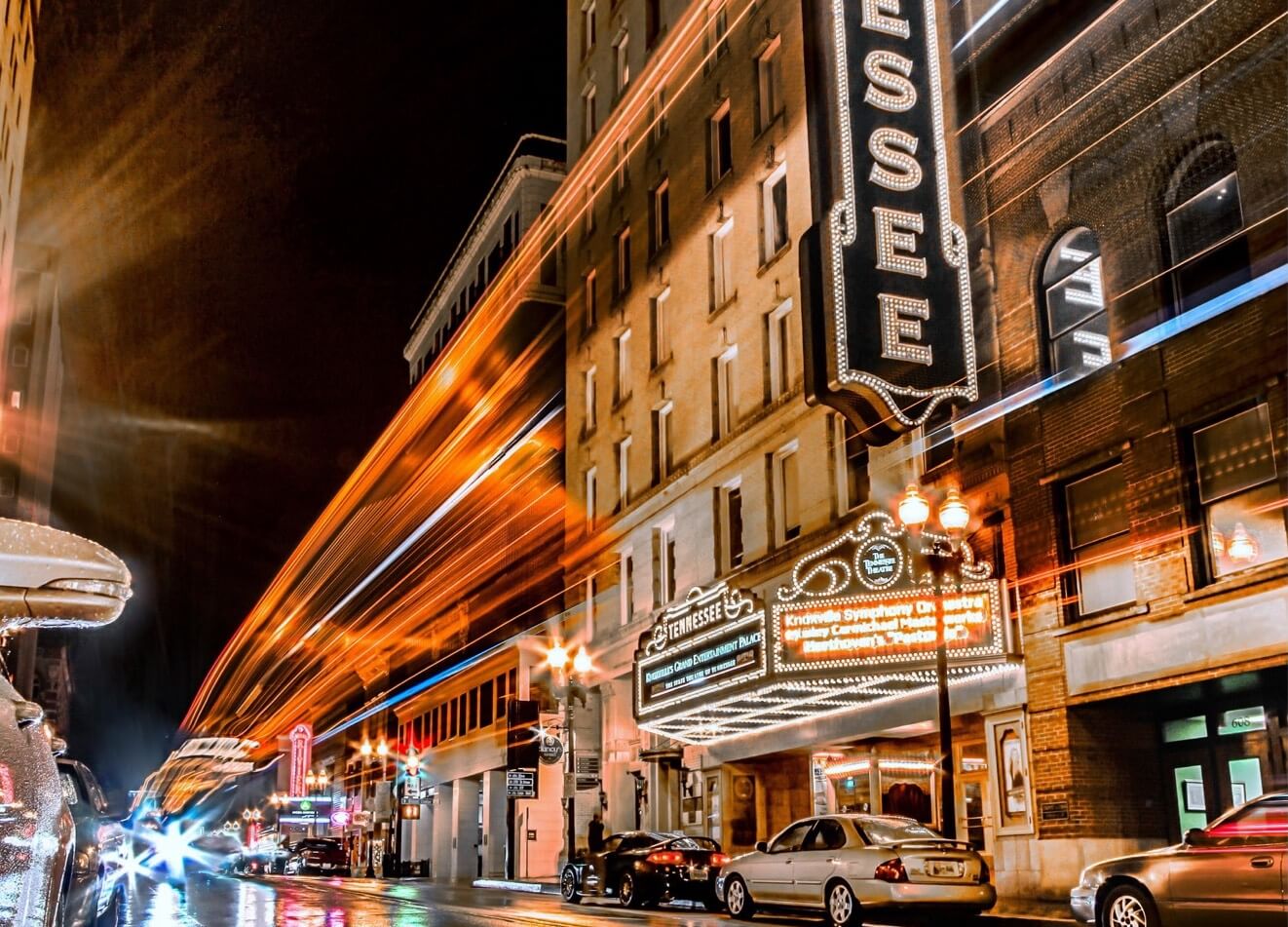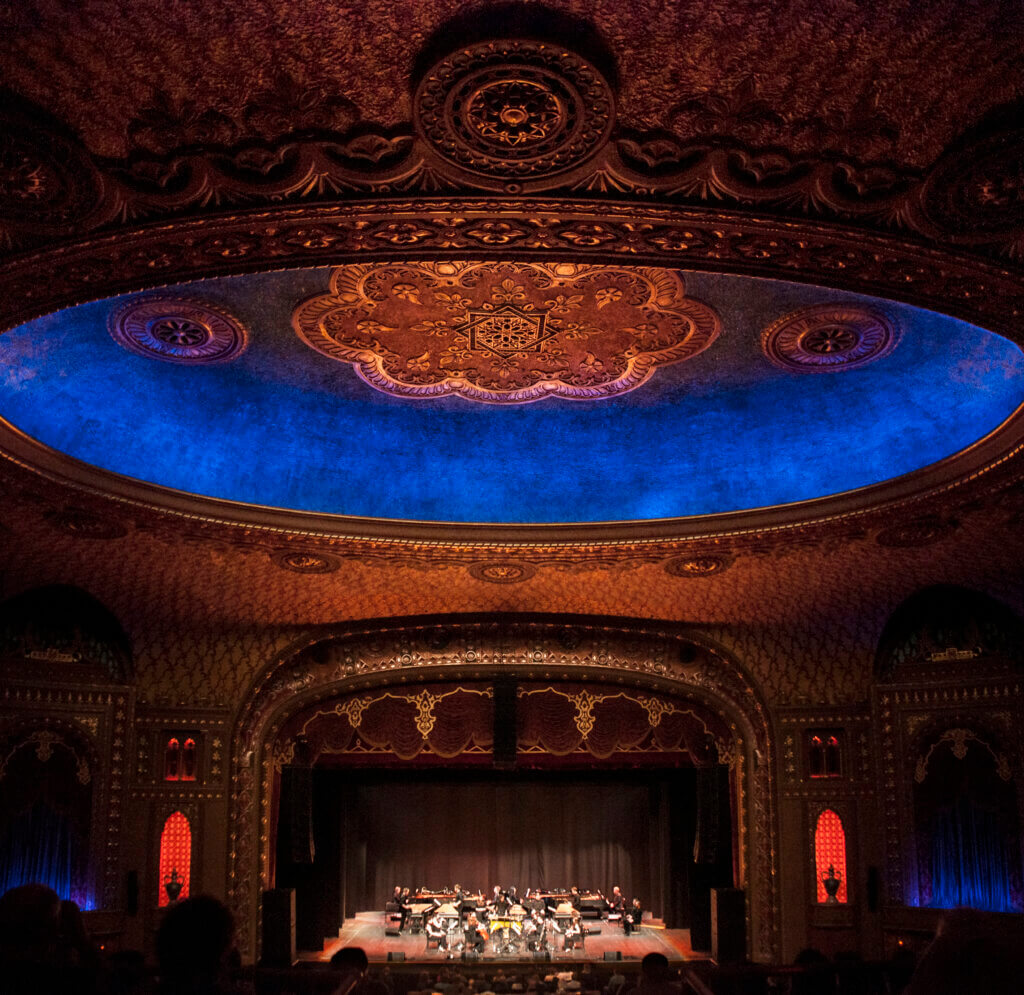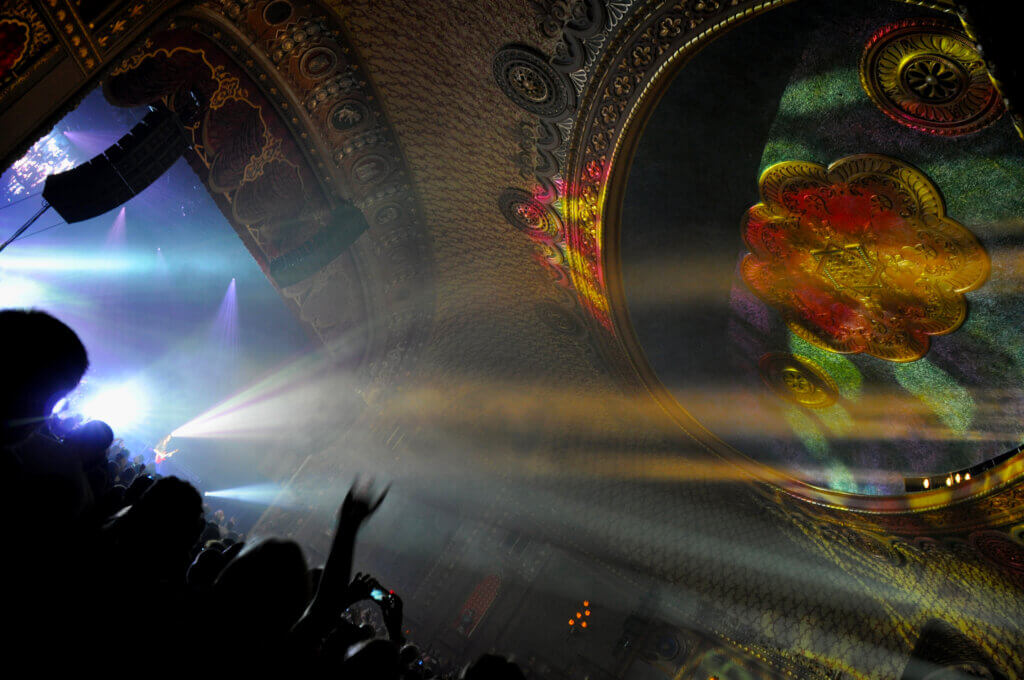Supporting the Arts: Focus on the Tennessee Theatre
Supporting the arts is more than a passion born of generosity. It also builds better communities.

As a young boy, Chris Kittrell entered the beautiful Tennessee Theatre with his mother to experience his first live performance. The moment he walked into the grand theatre, he knew he was in a very special place—one with the power to transform, celebrate, educate and express many different stories.
While many investment firms like Rather & Kittrell encourage clients to support the arts and other nonprofits and community endeavors, the Tennessee Theatre is especially close to Chris’s heart. One of the firm’s founders, Chris helps clients plan for the future, and also helps them identify philanthropies that support their individual passions.
THE ECONOMICS OF ART
Although often deemed an expensive passion, the value that arts add to the economy, the community and our culture is priceless. In 2019, arts and culture generated nearly $920 billion for the U.S. economy, making up 4.3 percent of our GDP. In Tennessee alone, home to Music City, the arts represent more than 4 percent of the economy and add more than 92,000 jobs. With the exception of the pandemic years, that economic contribution has continued to grow since 1998.
One of the big things we help clients with is charitable giving, so it’s very organic. People love to do it and want to get involved.
“One of the big things we help clients with is charitable giving,” Chris says, “so it’s very organic. People love to do it and want to get involved. Many people look to us to see what we’re involved in and who we give to, for guidance.”
For Chris, the Tennessee Theatre is a favorite place to contribute time, energy and resources. He often brings clients in for private tours, to experience the magic for themselves and understand the importance of the venue to the whole community. The arts contribute much more than monetary value to our society. “Having a vibrant cultural arts community makes a community healthier. It brings a level of excitement and creates memories,” says Becky Hancock, executive director of the Historic Tennessee Theatre Foundation.
The arts cultivate connections, promote cultural and historical understanding, and build more welcoming communities. They drive economic health, community enrichment and growth. Growing cities leverage their cultural offerings to attract new business, global brands and more residents. While most people know that there are tax advantages to giving, many do not consider the economic impact to the entire community. Businesses considering an expansion or relocation often weigh the cultural amenities of a community before making decisions about where to bring their jobs and spend their money.
THE TENNESSEE THEATRE—A CULTURAL ICON
The Tennessee Theatre is a local example of this cultural and financial impact. Designated the State Theatre of Tennessee, the theatre has hosted 96 years of jazz, classical and rock music, dance, comedy, broadway performances and films, offering something for everyone’s taste. Weddings, graduations and other special occasions have made personal memories for countless area residents. One of the many reasons the theatre is an iconic feature on the National Register of Historic Places is its ability to give lasting memories to individuals of all interests.
The hope for the theatre is to create shared experiences with long-time theater lovers and first-timers alike. Introducing someone to their first experience with the Tennessee Theatre broadens their appreciation of the arts, while passing on a magnificent memory.
“It’s all about sharing the theatre; that passion cannot be duplicated,” Becky says.
The grand movie palace is a masterpiece in its own right, with a Spanish-Moorish interior embellished with floor-to-ceiling elements from around the world: French-style chandeliers with Czechoslovakian crystals, Italian terrazzo flooring in the Grand Lobby, and Asian influences in the drapery and carpet patterns. The Tennessee was hailed as “the South’s most beautiful theatre” when it opened in 1928. Thanks to a significant restoration in 2003, that title still holds.
The Historic Tennessee Theatre Foundation worked hard to preserve the original charm and versatility of the theatre during the renovation. When it reopened in 2005 as a world-class performing arts center, all of the original magic was intact. An added appeal was modern functionality. The theatre shares its stage with the Knoxville Symphony Orchestra, Knoxville Opera and University of Tennessee Cultural Attractions.
“We work really hard to stay up to date,” on technology for productions, Becky says. “We just bought a new sound system last year and have been upgrading lighting over several years. It’s an art and a dance to keep up with differing expectations of different shows.”
COMMUNITY PROGRAMS
It is important to the foundation’s board that everyone in the community experience at least one live performance at the Tennessee. That philosophy led to the creation of several free events. One popular program, Mighty Musical Mondays, is a 20-year tradition featuring the beloved Mighty Wurlitzer organ, along with local and regional performers who get a chance to grace the stage. To share the power of the arts with younger audiences, the theatre also runs programs such as the Youth Arts Alliance, Showbiz Saturdays, Educational Tours and Master Classes. These traditions are designed to promote and nurture a love for the arts and passion for live theatre that is passed down from generation to generation.

Photo courtesy of E.L. Smith

Photo courtesy of E.L. Smith
“When I moved to Knoxville 10 years ago, Chris and Becky were both instrumental in pulling me onto the Historic Tennessee Theatre Board and I am forever grateful for that initiative,” Board President Ed Rottmann says. “I did not have extensive history with arts and culture, but I saw the theater as a beacon for downtown Knoxville. Since getting involved in the theater, I now see that this amazing venue is the epicenter of art, culture, music, downtown growth, and diversity outreach for our entire community. It all starts with people like Becky and Chris, too. Without the board and Becky’s fantastic team, the theater would not reach these bold new heights we are reaching towards.”
SUPPORTING THE ARTS
In his twenties, when Chris returned to the theater, it was as if he had been transported back in time to his many spectacular trips with his mother.
Since then, Chris has gotten involved with the Historic Tennessee Theater Foundation to learn the business, eventually becoming a member of the board of directors, where he still serves.
“Even something as simple as buying a ticket helps support the theater,” Becky says. Direct donations, which help with theater upkeep, tickets for underserved children, program costs, and continuing education, are always appreciated. Thanks to charitable gifts, they’ve been able to give between 200 and 500 free tickets to school groups every season and offer summer acting camps to build kids’ confidence and skills.
“Donors help pay for the educational programming for kids, [for] janitors, stage hands, program printing, and all the things that go into a show. The other way to support the theater could be by bringing someone new, just to create memories and introduce them to this cool community magic,” Becky adds.
The hope is to continue the tradition and appreciation of the theatre for generations through growing programs. By beginning financial planning early, people can position themselves to be able to share their wealth with the community, continuing the cycle of giving.
HISTORY OF TENNESSEE THEATRE
The Tennessee Theatre has been a community icon since plans to open a “large and modern theatre” on Gay Street were first announced in 1920. Its grand opening on October 1,1928, welcomed 10,000 people, foreshadowing its long-term success.
The theater would experience many firsts—the first UT football game screened as a moving picture (October 1930), the first double wedding on its stage (1936), and one of the first three theatres to premier Andrew Johnson’s bio-pic in 1943, with descendents of the late president in attendance.
The architectural marvel, designed by Graven & Mayer, was the site of many groundbreaking moments, including All the Way Home and one of Kenny Chesney’s first music videos. The Mighty Wurlitzer organ filled its grand walls with music, with Dr. Bill Snyder on the bench for 39 years (1979-2018).
Added to The National Registry of Historic Places in April 1982, the theater has experienced several renovations.A major renovation and restoration from 2003 to 2005 both preserved the entire interior and updated theatrical equipment and support spaces. More updates to technology are ongoing as needed to meet the needs of touring productions.
The theatre has received national recognition, outranking Nashville’s Ryman Auditorium in 2009 on Pollstar’s list of the World’s Top 50 Theaters. The Tennessee has hosted over 250,000 broadway performers, the Knoxville Opera, Appalachian Ballet, Jay Leno, Johnny Cash, Diana Ross and other household names.
Thanks to local nonprofit groups and community support, the Tennessee remains a thriving venues for memories old and new.
PROFILE HIGHLIGHT

Becky Hancock,
Executive Director
Becky Hancock, executive director of the Tennessee Theatre Foundation, is both a public face and behind-the-scenes driver of great things happening at one of the state’s most iconic places.
What do you consider your biggest accomplishment at the Tennessee Theatre?
During my first stint with the Tennessee Theatre, I was most proud of being part of the team that renovated the theatre. It was such a privilege to be part of the process.
What I’m most proud of, to date, is strengthening the nonprofit identity of the Tennessee, helping people understand that this is not a commercial concert venue. We have a mission to serve the community. This beautiful building helps us do that uniquely—broadening the focus of the theatre beyond the stage to the larger community, enhancing the arts and culture landscape of Knoxville.
What are your goals for the future of the Tennessee?
We certainly have big dreams. We’d like to grow the education department, be able to go into schools and teach kids about the performing arts. But we need to make sure we have enough ticketed events to bring in revenue to sustain it. We want to partner with like-minded organizations to enhance the community’s offerings.
More Ways to Thrive
After selling his family business, Pat Carroll was in a place to rediscover old pursuits–and meet new challenges.
RK talks about what guides us in life and how to incorporate that into financial decisions.